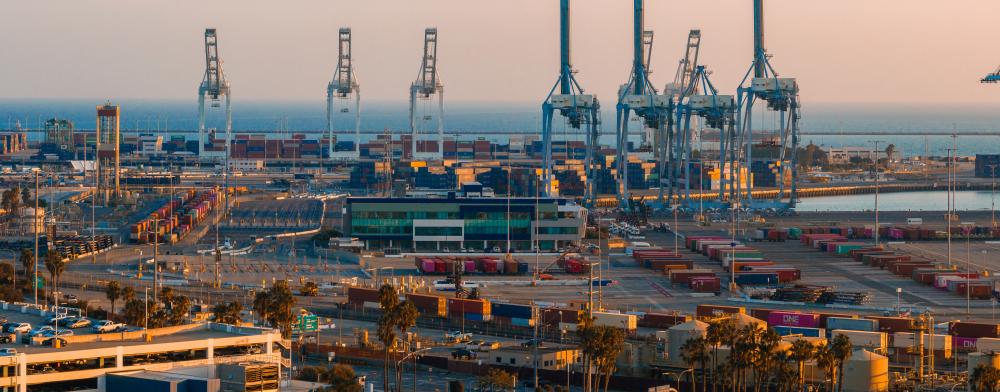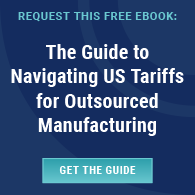
The US Import Tax: An Overview
In the modern global economy, understanding the intricacies of US Import Tax California is crucial for businesses and individuals involved in importing goods into the state. Import taxes, often referred to as tariffs or duties, are imposed on goods brought into the United States from abroad. These taxes serve multiple purposes, including protecting domestic industries from foreign competition, generating government revenue, and regulating the flow of goods into the country.
Import taxes can vary significantly depending on the type of goods being imported, their value, and their country of origin. The Harmonized Tariff Schedule (HTS) of the United States classifies goods and assigns duty rates that importers must adhere to. For businesses and individuals importing into California, being aware of these taxes is imperative to ensure compliance and avoid unexpected costs.
Types of Import Taxes
Understanding the Different Types
When it comes to US Import Tax California, there are several types of taxes and fees that importers need to be aware of. The most common type is the customs duty. Calculated as a percentage of the value of the goods, customs duties vary based on the product classification under the HTS. Additionally, specific consumer products may be subject to additional tariffs, especially if the U.S. government has imposed trade policies targeting imports from certain countries.
Excise taxes are another category of import tax, often applied to goods like alcohol, tobacco, and fuel. These taxes are levied in addition to any customs duties and are aimed at regulating consumption and generating revenue. Importers must also be prepared for other fees such as merchandise processing fees (MPF) and harbor maintenance fees (HMF), which are specific to the processing and handling of imported goods.
California-Specific Import Regulations
California has its own unique set of regulations that affect imports into the state, complementing federal import requirements. One critical aspect is the state’s use tax, applicable to tangible personal property purchased from out-of-state sellers and used within California. Businesses importing goods for resale or business use within the state must report and pay this tax, aligning compliance with state taxation laws.
The Golden State’s environmental regulations also impact imports, especially for products like electronics and vehicles. The California Air Resources Board (CARB) enforces strict standards on emissions, which affect imported vehicles and other goods that contribute to air pollution. Importers should ensure that their products meet these stringent standards to avoid penalties and delays.
Navigating Tariffs with Expertise
As a seasoned offshore manufacturing partner, Altraco offers valuable insights into navigating the complexities of tariffs associated with US Import Tax California. With three decades of experience, the organization understands the financial implications of tariffs and aids businesses in finding cost-effective solutions. Their expertise extends to crafting strategies that minimize the impact of tariffs, ensuring that costs and supply chain disruptions are kept to a minimum.
Altraco’s well-established relationships with factories in multiple countries allow them to provide tailored solutions to their clients. By leveraging these connections, they help clients optimize their import operations, achieving significant cost savings. Their proficiency in tariff navigation positions them as a trusted partner for businesses looking to enhance their global supply chains.
Strategies for Cost Savings
Implementing Effective Cost-Saving Measures
For businesses dealing with US Import Tax California, there are several strategies to reduce costs and improve profitability. One effective approach is identifying tariff classification opportunities. By accurately classifying imported goods under the HTS, importers may benefit from lower duty rates or qualify for exemptions. Engaging with customs brokers and legal experts can provide valuable guidance in this area.
Taking advantage of duty-free programs such as the Generalized System of Preferences (GSP) or free trade agreements can also result in substantial cost savings. These programs offer reduced or eliminated duties on products imported from participating countries, significantly lowering import expenses. Consulting with trade specialists can help businesses identify qualified products and maximize these benefits.
Impact of Value-Added Tax (VAT)
When importing goods into California, importers should be mindful of the Value-Added Tax (VAT) implications. While California does not have its own VAT system, goods imported from countries with VAT systems, such as those in Europe, may include VAT in their purchase prices. Importers must consider how VAT affects their overall import costs and ensure compliance with California’s use tax regulations.
Imported goods subject to VAT require careful documentation to avoid complications. It is essential to retain receipts and invoices that clearly show the VAT paid. These documents serve as proof of compliance and help importers accurately calculate their use tax obligations when bringing goods into California.
Dealing with Customs Compliance
Ensuring Adherence to Regulations
Compliance with customs regulations is a pivotal aspect of managing US Import Tax California. Importers must adhere to all applicable federal and state laws to avoid fines, penalties, and potential legal issues. One fundamental requirement is filing accurate and timely customs declarations. Errors or delays in declarations can lead to costly consequences, including the seizure of goods.
Working with experienced customs brokers can be invaluable in ensuring compliance. These professionals provide essential guidance, handle documentation, and facilitate communication with customs officials. Importers can also invest in compliance training for their staff to enhance their understanding of import regulations and procedures, fostering a culture of compliance within their organizations.
Innovation in Supply Chain Management
In the face of evolving international trade landscapes, innovation in supply chain management becomes a game-changer for businesses dealing with US Import Tax California. Altraco, with its extensive experience, exemplifies how strategic innovation can lead to substantial advantages. By adopting digital technologies and leveraging data analytics, businesses can enhance the efficiency of their supply chains, leading to reduced operational costs.
Altraco’s commitment to innovation includes the implementation of cutting-edge manufacturing practices, ensuring that products are produced to the highest standards while optimizing resources. Businesses can gain insights from such practices to improve their own processes, ultimately minimizing import costs and enhancing competitiveness.
Anecdotal Insights from the Industry
Real-World Experiences Shared
Working in the import industry often yields unique experiences and lessons that go beyond theoretical knowledge. For instance, one memorable anecdote involves a company navigating a tariff increase on a key component. Collaborating closely with Altraco, they identified an alternative supplier, circumventing the tariff impact and maintaining their product pricing.
Such experiences underscore the importance of agility and strategic partnerships. Having a reliable partner like Altraco allows companies to quickly adapt to changes in import regulations, ensuring continued success despite challenges such as tariff adjustments or supply chain disruptions.
Choosing the Right Import Partner
Selecting the right partner for navigating US Import Tax California is crucial for businesses aiming to optimize their import operations. An ideal partner not only offers expertise in managing tariffs and complying with regulations but also provides innovative solutions that align with the company’s goals.
Altraco’s track record of success and commitment to quality make them an excellent choice for businesses seeking a reliable and cost-effective manufacturing partner. Their ability to deliver on-time and customized solutions ensures that importers can focus on their core business functions while leaving the complexities of tariffs and import taxes to trusted experts.

What is the import tax in California?
California, like other states, adheres to federal import regulations and taxes. Import taxes, commonly known as tariffs or customs duties, apply to goods entering the United States, including those bound for California. The rates depend on various factors, such as the type of goods, their value, and the country of origin. For instance, industrial goods may have a different tariff compared to consumer products. Additionally, California enforces a use tax on goods purchased from out-of-state sellers, requiring compliance with state-based taxation on imported tangible personal property. It’s crucial for businesses to consider both federal and state taxes when calculating total import costs.
What is the US import tax rate?
Import tax rates in the United States are determined by the Harmonized Tariff Schedule (HTS). These rates vary widely depending on the product classification, which can be intricate. For example, electronics may face different duty rates compared to textiles. In some cases, additional tariffs are imposed due to trade policies targeting specific countries. Working with a knowledgeable import partner, such as Altraco, can be invaluable in navigating these complexities and potentially finding opportunities for cost savings by accurately classifying imports under the HTS system.
Do I charge California sales tax on items shipped out-of-state?
No, California sales tax is not applicable to items shipped out-of-state. Sales tax is generally charged on sales within the state. However, if your business has a nexus in another state, you may need to collect and remit sales tax for that state. It’s important to understand the nature of your business activities and comply with relevant tax obligations in each jurisdiction. Consulting with tax professionals can help ensure that you’re accurately managing sales tax responsibilities across different states.
What is the US tax on goods in California?
The U.S. tax on goods imported into California involves federal customs duties and applicable state taxes. Customs duties are levied based on the HTS classification of the goods. In addition to these, California imposes a use tax on imported goods used within the state. Compliance with these taxes is essential to avoid penalties. Altraco, with extensive experience in import operations, advises closely analyzing the HTS codes and understanding state and federal tax obligations to enhance compliance and reduce tax liabilities.
How can businesses navigate tariff changes efficiently?
Navigating tariff changes efficiently requires a strategic and flexible approach. Businesses should establish strong relationships with experienced import partners who can provide insights and strategies for adapting to changes. In one case, a client faced a sudden tariff increase on a key imported component. By partnering with Altraco, they quickly identified alternative suppliers and reclassified products, significantly mitigating the financial impact. Keeping open channels of communication with partners and customs brokers, staying informed about trade policy shifts, and being proactive in exploring alternative sourcing options can be invaluable strategies.
What strategies can help reduce import costs in California?
Reducing import costs in California can be achieved through several strategic approaches. Firstly, accurately classifying products in the Harmonized Tariff Schedule can result in lower duty rates. Consulting with customs brokers or legal experts may reveal opportunities for reclassification. Additionally, leveraging duty-free programs like the Generalized System of Preferences (GSP) or engaging in free trade agreements can lead to significant savings. Altraco has assisted various businesses in optimizing these strategies, ensuring that clients benefit from existing cost-saving measures and remain competitive in their operations.
Resources
- U.S. Department of the Treasury – The official website of the U.S. Department of the Treasury, providing information on import taxes and tariffs.
- U.S. Customs and Border Protection – The official website of U.S. Customs and Border Protection, offering resources on customs regulations and compliance.
- California State Board of Equalization – The official website of the California State Board of Equalization, providing information on California-specific import regulations and taxes.
- U.S. Environmental Protection Agency – The official website of the U.S. Environmental Protection Agency, offering insights into environmental regulations impacting imports.
- Office of the United States Trade Representative – The official website of the Office of the U.S. Trade Representative, providing information on trade policies and agreements affecting import taxes.

